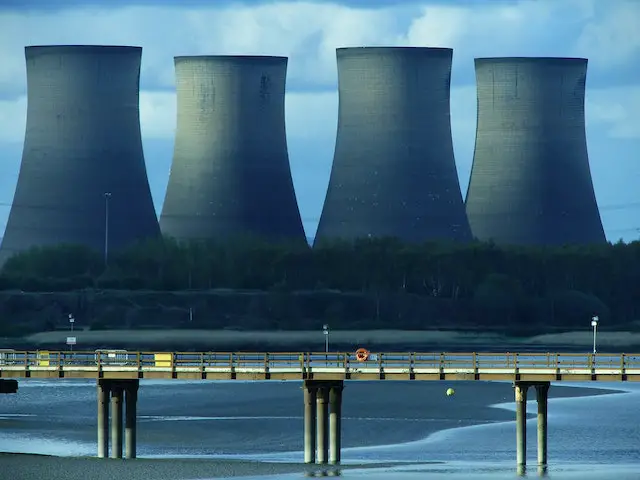Theme:
- Edward Teller, the father of the hydrogen bomb, believed that the decision to abandon the development of thorium-based nuclear energy was a mistake. Teller believed that thorium could provide a safer and more sustainable alternative to traditional nuclear power, which relies on the radioactive decay of uranium or plutonium, and that a nuclear reactor running on thorium instead of uranium could give us energy for 1000s of years. Despite this, the use of thorium as a fuel for nuclear power was abandoned in the mid-20th century. Only a handful of thorium nuclear reactors exist in the world.
What is Thorium?
- Thorium is a naturally occurring radioactive metal that has been proposed as a potential source of unlimited energy. Unlike traditional nuclear power, which relies on the radioactive decay of uranium or plutonium, thorium reactors use a process called nuclear transmutation to convert thorium into usable fuel.
Benefits of Thorium:
- Thorium reactors produce significantly less nuclear waste compared to traditional uranium reactors.
- Thorium cannot be used to make weapons because thorium reactors do not produce weapons-grade byproducts, unlike the traditional uranium reactors which produce weapons-grade byproducts, such as enriched uranium or plutonium, which can be used to make nuclear weapons.
- Thorium reactors pose a lower risk of meltdown, making them safer to operate.
- Thorium is much more efficient than uranium. It generates more energy from a similar amount of fuel, and also runs for longer periods of time without refuelling, increasing its overall efficiency.”

Why it was abandoned?
- The primary focus of nuclear research and development during the mid-20th century was the production of weapons, and uranium-based reactors were better suited to this purpose than thorium-based reactors.
- The development of thorium reactors was not a priority, and funding for research and development was limited.
- During the mid-20th century, the technology behind thorium reactors was not as well understood and there were significant technological barriers to overcome.
- At that time, uranium was more readily available than thorium, and the design of thorium reactors was considered to be more challenging to build and operate, making uranium-based reactors the more practical choice for nuclear power generation.
Present situation:
- Despite these challenges, there has been renewed interest in thorium as a fuel for nuclear power in recent years, driven by concerns about the environmental impact of traditional uranium reactors and the need for more sustainable sources of energy.
- China is dominating in this field, having built its thorium reactor in late 2022 and expecting to expand it into a larger plant by 2030. It is also experimenting with different types of reactors to convert thorium into usable fuel.
- India has the largest thorium reserves in the world and has been working to develop the technology to harness its potential as a fuel for nuclear power.
- In recent years, India has made significant progress in developing thorium reactors and has established a multi-stage nuclear power program that aims to use thorium as the primary fuel for its future nuclear power plants.
- Many private companies have also shown interest in developing thorium reactors. Companies such as Flibe Energy, ThorCon and Copenhagen Atomics have made significant progress in this area.
Conclusion:
Thorium reactors have the potential to be a safer and more efficient source of energy compared to traditional uranium reactors. With growing interest from countries like China and India, as well as private companies, it is likely that thorium reactors will play a significant role in the future of nuclear power generation. However, there are still challenges to overcome before thorium reactors can become widespread, including technical and economic hurdles. Despite this, the potential benefits of this technology make it a promising option for the future of energy production.
Photo by Pixabay
Your Turn…
What’s your take on this topic? Express your point of view through the comment section below. And subscribe to our blog to read answers to the trending GD topics.
Copyright @ Group Discussion Ideas.

